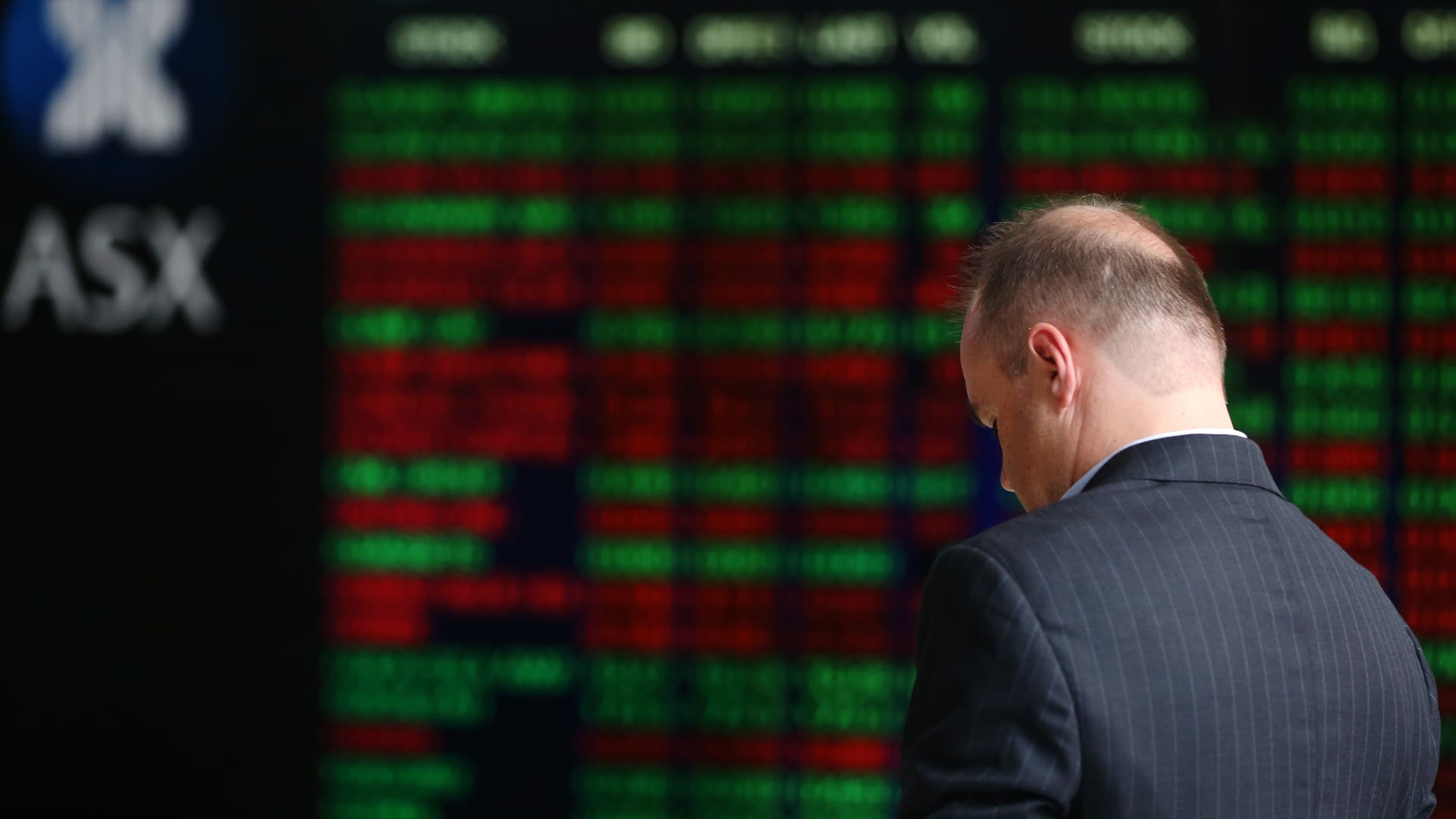China, Aussie stocks gain, Japan shares take a breather
SYDNEY, AUSTRALIA – MARCH 16: A man looks at an electronic board displaying stock information at the Australian Securities Exchange, operated by ASX Ltd. on March 16, 2020 in Sydney, Australia.
Brendon Thorne
Asia-Pacific markets mostly rose on Thursday, with Australia stocks hovering near two-year highs and China markets extending gains to the second straight day, though Japan shares took a breather after rallying the day before.
Markets including Australia and Hong Kong resumed trading Wednesday after a Christmas break, both ending higher, while China stocks were buoyed by a rebound in online gaming stocks.
Australia’s S&P/ASX 200 index rose 0.33%, holding at its highest level since late April 2022. The index is set to end the year decidedly higher at 7.7%.
Japan’s Nikkei 225 fell 0.49%, after closing more than 1% higher in the previous session. The broader Topix index shed 0.25%, cooling off after four straight sessions of gains.
Retail sales data from Japan showed a 5.3% growth in November, higher than a Reuters poll forecast of 5%.
Hong Kong’s Hang Seng index opened 0.65% higher, rising for the second day. Hong Kong is still the worst performing large Asia-Pacific market in 2023, down some 16%.
China’s CSI 300 index opened 0.32% higher, also extending gains to the day.
South Korea’s Kospi was 0.49% higher, clinging on to gains from the previous session. The small-cap Kosdaq turned positive by the second hour of trading, rising 0.19%.
Overnight, U.S. stocks finished higher Wednesday as traders kept an eye on the S&P 500’s march toward record levels.
The S&P 500 inched up 0.14%, while the Nasdaq Composite added 0.16%. The Dow Jones Industrial Average rose 111.19 points, or 0.3%, to finish at 37,656.52.
The Dow notched a fresh closing high, while the S&P 500 finished less than 0.5% off of its closing record of 4,796.56 set in January 2022. Along with the Dow and Nasdaq, the S&P is also enjoying an eight-week winning streak — its longest since 2017.
— CNBC’s Samantha Subin and Alex Harring contributed to this report




